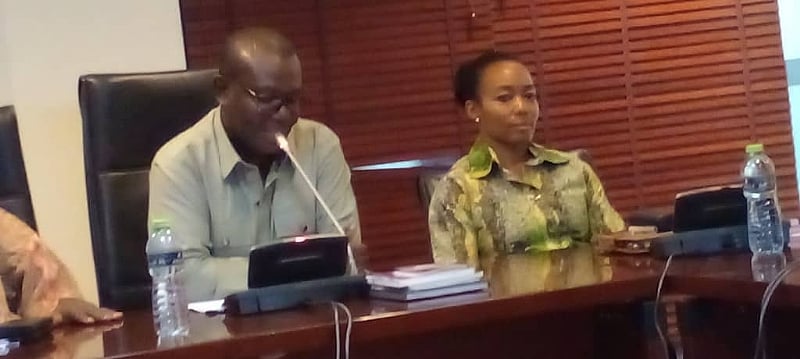Paragraph 1: A parliamentary committee has been established to investigate the recent chaotic scenes that disrupted the vetting of ministerial nominees in Ghana’s Parliament. The committee, chaired by Mr. Emmanuel Kwasi Bedzrah, MP for Ho West, has emphasized that its purpose is not to target specific individuals but to conduct a fair and transparent investigation into the events of January 30, 2025. The committee’s objective is to identify Members of Parliament (MPs) who may have violated parliamentary rules of conduct during the vetting process and recommend appropriate actions. The seven-member committee comprises representatives from both the ruling and opposition parties, ensuring a balanced and impartial approach to the investigation.
Paragraph 2: The disruptions arose during the evening session of the Appointments Committee’s vetting proceedings. Following the successful vetting of five nominees, disagreements emerged regarding the continuation of the process. The Majority Caucus sought to vet two additional nominees, while the Minority Caucus, citing the late hour, proposed adjourning the proceedings until the following day. The Majority’s insistence on continuing the vetting, coupled with accusations of time-wasting against the Minority Leader, escalated tensions, ultimately leading to physical altercations, damage to parliamentary property, and the abrupt suspension of the vetting process. The Speaker of Parliament, Alban Bagbin, intervened to restore order and apologized for the incident, rescheduling the remaining vetting sessions.
Paragraph 3: The clashes between the Majority and Minority caucuses revealed underlying tensions and partisan divisions within Parliament. The Minority Leader, Mr. Afenyo-Markin, accused the Clerk of the Appointments Committee of partisan bias, alleging that she favored the ruling party, the National Democratic Congress (NDC). He further claimed that the Minority was being bullied and prevented from effectively scrutinizing the nominees. Mr. Afenyo-Markin asserted that an earlier agreement to vet only three nominees had been disregarded by the Majority, who attempted to push through additional vettings without consensus. These accusations contributed to the escalating tensions and eventual breakdown of order within the committee.
Paragraph 4: In response to the unprecedented disruption, Speaker Bagbin announced a series of measures to address the immediate fallout and prevent future occurrences. Four MPs directly involved in the physical altercations were suspended from parliamentary activities for two weeks. This decisive action aimed to underscore the seriousness of the breaches of parliamentary conduct and deter future disruptions. Furthermore, a criminal complaint was lodged with the police to initiate a formal investigation into the incident and hold those responsible accountable under the law. This step signified the Speaker’s commitment to upholding the integrity of Parliament and ensuring that any criminal acts were duly addressed by law enforcement.
Paragraph 5: To restore trust in the vetting process and mitigate concerns of bias, Speaker Bagbin directed the Committee of Selection to reconstitute the Appointments Committee. This measure aims to address the allegations of partisanship and ensure a more balanced and impartial committee composition for future vetting proceedings. Additionally, a comprehensive assessment of the damage to parliamentary property was ordered to determine the extent of the financial losses incurred during the chaotic scenes. Those found responsible for the damage will be surcharged to cover the costs of repairs or replacements, ensuring individual accountability for the destruction of public property.
Paragraph 6: The committee investigating the disruptions is actively seeking information from all stakeholders, including MPs, media personnel, and guests who were present during the vetting. Public hearings will be conducted to ensure transparency and allow individuals to testify openly about the events that transpired. The committee has been given a ten-day deadline to submit its findings and recommendations to the Speaker. The public has been encouraged to contribute any multimedia evidence relevant to the investigation. The committee’s work is crucial for establishing a clear understanding of the events that led to the chaos, holding those responsible accountable, and implementing measures to prevent similar incidents from occurring in the future, thereby safeguarding the integrity and smooth functioning of Ghana’s parliamentary processes.


